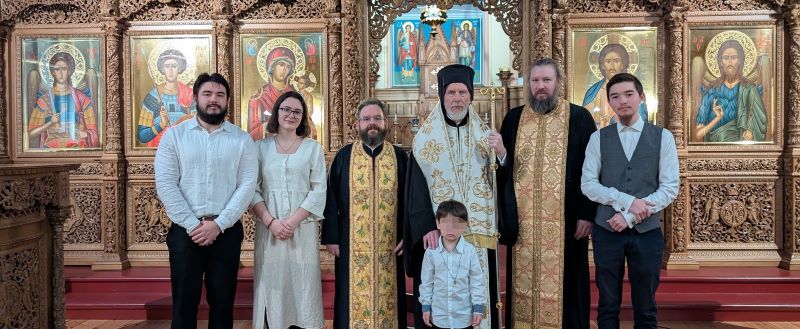St. George Cathedral of Stockholm
Sunday, August 31, 2025
Dearly Beloved Brothers & Sisters in Christ,
In today’s Gospel reading, we learn about a young man seeking eternal life, out of earnest desire.
Christ first gently guides him toward the commandments; what the Mosaic Law demands.
St. John Chrysostom sees in this exchange no pretense. The man was sincere; impelled by longing.
The young man’s second question, “What do I still lack?” yearns for something beyond lawkeeping.
Jesus’ response is stark: “If you would be perfect, go, sell what you possess and give to the poor, and follow me.”
The man leaves sorrowful, overwhelmed by his riches.
Jesus declares, “How hard it is for those who have riches to enter the kingdom of God!” and warns, “It is easier for a camel to go through the eye of a needle…”
St. Luke of Simferopol points out: at the time, wealth was seen as divine blessing. Jesus overturned that principal. He showed that attachment to wealth hardens the heart, making true communion with God inaccessible.
St. John Chrysostom adds that wealth isn’t condemned in itself; it’s possession that enslaves the soul.
The disciples, troubled, ask: “Who then can be saved?” Christ’s answer is both humbling and hopeful: “With people this is impossible; but with God all things are possible.”
This Gospel confronts us today with our idols; money, comfort, approval, security. We may not be wealthy, but we can still be enslaved to cares, plans, and possessions. Christ calls us to let go.
In today’s Eucharistic gathering, we welcome the Reverend Protopresbyter Fr. Nikolaos Lymbouridis, Director of the Choir of the Holy Metropolis of Limassol, “Romanos o Melodos (the Melodist).” They are visiting our city these days and on Friday evening they offered an exceptional concert of Byzantine Music in our Cathedral.
This morning, we had the joy of hearing them chanting, and we marveled at the talent with which God has gifted them. They are worthy successors of the great teachers of the sacred chant tradition, beautifully interpreting the sublime hymns of the Mother Church.
I pray that the Lord may grant you all health, and strength to continue promoting our chanting tradition!
Allow me also to express my deepest gratitude to the 50 volunteers of the Holy Metropolis of Sweden, who, with a spirit of sacrificial dedication, contributed for several weeks to the preparation and promotion of the Patriarchal Visit and the hospitality of our distinguished guests from nine countries, honoring the third official Visit of His All-Holiness Ecumenical Patriarch Bartholomew to Stockholm and to our Cathedral, twice during this past week. I thank you all from the bottom of my heart.










